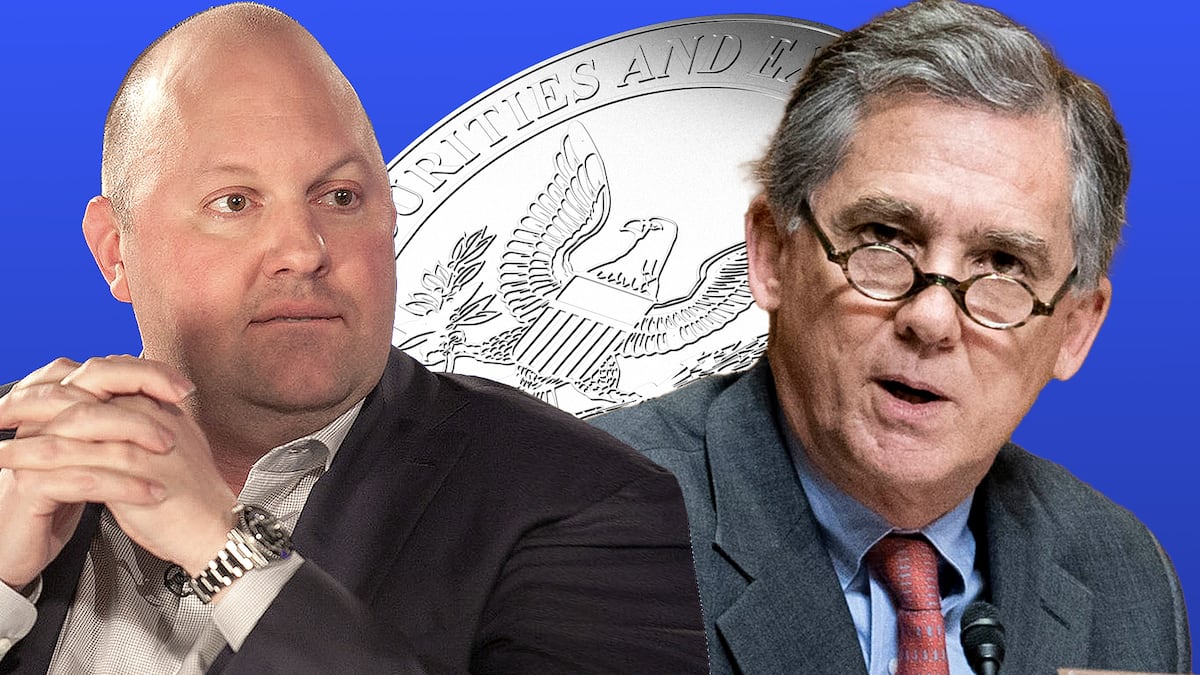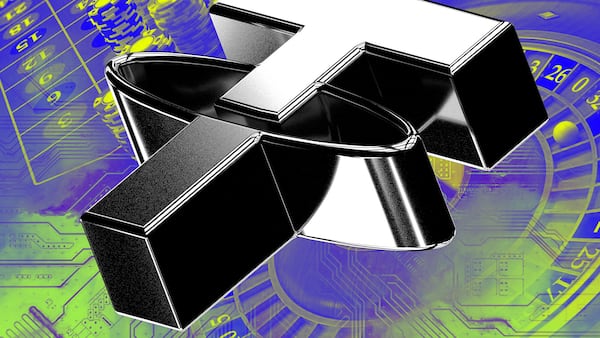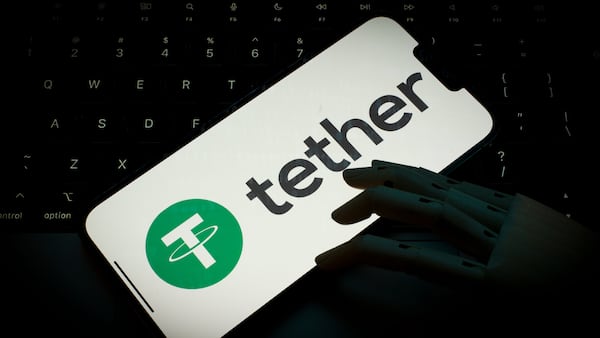- Crypto leaders' outcry over lost bank accounts is driving action on Capitol Hill.
- The issue casts a spotlight on the workings of bank supervision.
- Crypto advocates say 'Operation Chokepoint 2.0' is living up to its name.
About an hour into a Congressional hearing last week, Representative French Hill had heard enough.
“No one has any patience on this on either side of the aisle,” the Arkansas Republican said.
“Legal businesses in the United States, in this great country, should have the freedom to bank and have financial services.”
Then on Wednesday, Senator Tim Scott, the ranking Republican on the Senate Banking Committee, said his own piece on the matter during a hearing.
“No legal business should ever be debanked,” Scott said.
Fiery issue
In recent weeks, “debanking” has escalated into a fiery issue as suspicions mount that lenders, goaded by the Biden administration, are going out of their way to drop crypto companies and founders as clients.
Gemini CEO Tyler Winklevoss called it “unlawful, evil behaviour.” Last year, crypto investor Nic Carter coined a catchier term: “Operation Chokepoint 2.0.”
Scores of industry leaders say they have been debanked, and are calling for an end to the purported practice. They want investigations. And their friends on Capitol Hill are eager to heed the call.
“We have the documents we’re reviewing,” Hill said at last week’s hearing. “We’re going to continue that review through the end of this congress and into the next Congress.”
The only catch: Is debanking in crypto actually a thing?
The short answer: It’s complicated.
Reputational damage
Bank regulators aim to protect not just consumers, but also to shield banks from potential harm to their reputations. Scandals can damage a brand enough to trigger a run on the bank.
The problem, says Julie Hill, dean of the University of Wyoming College of Law, is that regulators can overreach.
“They define reputation risk really broadly to include any risk of negative publicity, whether true or not,” she said.
“We’ve had examples in the past where regulators seem to be using this to crack down on industries they didn’t like.”
‘The bank just might decide it’s not economical to research on your transactions.’
— Julie Hill, University of Wyoming College of Law
Crypto leaders contend they have evidence showing just that.
On Friday, Paul Grewal, Coinbase’s top lawyer, said he had obtained documents from the Federal Deposit Insurance Corporation that prove it aims to deny banking services to the crypto industry.
“The letters show that this was no conspiracy theory,” Grewal told CoinDesk.
Solvency and stability
Martin Gruenberg, the chair of the FDIC, rejected the notion on Thursday, according to reporter Ryan Tracy, of Capitol Account.
Individuals’ bank accounts posed “no supervisory concern,” Gruenberg reportedly said. But the FDIC did put the brakes on some banks’ plans to invest in crypto directly.
“The FDIC does not debank crypto firms in terms of their depositor relationships with banks,” Gruenberg said, according to Tracy.
“In terms of banks engaging in crypto asset activity, either on or off of their balance sheet, that has been a subject of supervisory attention.”
A mandate
Crypto sceptics say whatever wariness banks may have about crypto hardly amounts to a scandal.
“The FDIC has a statutory mandate to preserve the solvency and stability of the banks under its purview,” Dru Stevenson, a professor at South Texas College of Law Houston, told DL News.
“Legally, this includes admonishing banks to avoid clients who could pose a risk to the bank’s solvency if they are caught doing something illegal, or from the bad publicity or scandal that goes along with an enforcement action.”
Moreover, banks have to follow costly anti-money laundering protocols, and that means some customers are more trouble than they’re worth.
“The bank just might decide it’s not economical to do all that research on all your transactions,” Hill said.
Debanking or derisking?
Indeed, where crypto executives see “debanking,” lenders see “derisking.” The former term isn’t even used in the financial industry.
“When one discusses this with a colleague, one might use words like offboarding, desrisking, closing the accounts of a customer, etc,” said Patrick McKenzie, a strategic advisor to Stripe, the payments platform, wrote in an essay this week.
‘This has been happening to all the crypto entrepreneurs in the last four years.’
— Marc Andreessen, a16z
The issue caught fire on social media last month after Marc Andreessen, the influential venture capitalist, decried debanking on Joe Rogan’s podcast.
“This has been happening to all the crypto entrepreneurs in the last four years,” Andreessen said.
“Can confirm this is true,” Coinbase’s Brian Armstrong said on X.
Sam Kazemian, the founder of Frax, said his bank account at JPMorgan was closed after a representative told him “we have to close anyone’s account that we know their primary source of income/wealth is crypto.”
JPMorgan Chase did not respond to a request for comment.
Operation Chokepoint
The roots of the imbroglio go back to the Obama Administration. In 2013, the Department of Justice subpoenaed banks believed to be turning a blind eye to fraud.
What followed was an effort “choking off the very air” criminals need to survive — their bank accounts.
Some lawmakers complained the initiative swept up legit businesses in industries that, according to the FDIC, exhibited higher-than-average rates of fraud, including payday lenders, gun manufacturers, tobacco retailers, and pornographers.
The FDIC appeared to bow to pressure from lawmakers when it told banks in 2015 that they could not discriminate against “entire categories of customers” and had to vet them on a case-by-case basis.
Rumblings of a second Operation Chokepoint came in early 2023, as the ruins of FTX smoldered and the mainstream press published story after story detailing crypto industry’s other multi-billion dollar failures, hacks, frauds, and money laundering schemes.
‘Do not migrate’
Scrutiny of crypto-friendly banks intensified, and federal bank regulators and White House advisers released statements highlighting the industry’s risks.
It was important that crypto’s risks “do not migrate to the banking system,” read one warning from regulators at the time.
Banks, it continued, were “neither prohibited nor discouraged from providing banking services to customers of any specific class or type.”
Carter, the crypto investor, argued last year that these actions amounted to an attempt to push crypto out of the US.
He said his suspicions were confirmed when a pair of crypto-friendly banks — Silvergate Bank and Signature Bank — closed in March 2023. (Though some critics claim those banks had bigger problems).
The issue heats up
Fast forward to late 2024 and the question remains: Is Operation Chokepoint 2.0 a genuine programme?
Or is this just a matter of regulators and lenders protecting depositors and safeguarding stability in the banking system?
It’s hard to say, according to Hill, the law school dean.
Banks don’t have to provide a rationale for closing or denying a bank account. After all, they are businesses, not publicly-owned utilities.
Bank stigma
Moreover, the law prohibits banks and their regulators from disclosing confidential information. This is done partly to protect the reputations of banks’ clients from the stigma of being dropped as customers.
Then again, even if their guidance is framed as a recommendation, lenders tend to take regulators seriously and act.
“You combine the secrecy with the claimed power to regulate and enforce reputation risk, and I don’t think you have to be a complete conspiracy theorist to have questions about what regulators are doing with that power,” said Hill.
Many unknowns
Sceptics, meanwhile, say the industry is making a meal out of lenders’ conservative business practices. Neither banks nor banking regulators like uncertainty. And crypto is an industry teeming with unknowns.
Are tokens securities or commodities? Are DeFi protocols subject to the Bank Secrecy Act? And precisely what type of licensing requirements should be imposed on crypto platforms to protect their users?
These questions present a real, if hard to quantify, challenge. Some say that gives banks every right to distance themselves from crypto founders and companies.
“The ‘debanking’ stories from tech VCs and execs over the last few days all sound like … ‘I was running a crypto startup selling unregistered securities in the middle of a bubble and risk-averse banks, with their stupid compliance departments, wouldn’t bank me,’” Jacob Silverman, the co-author of “Easy Money: Cryptocurrency, Casino Capitalism, and the Golden Age of Fraud,” wrote on X.
Suspicious acvitity
Others wondered whether complaints about debanking are a springboard for another agenda — deregulation of the financial sector.
Last week, Andreessen appeared to suggest the US should scrap laws like the 54-year-old Bank Secrecy Act that force banks to monitor customer transactions for signs of money laundering or other illicit activity.
Carter, responding to the post, made his industry’s intentions clear.
“And for our next trick we’re going to convince everyone that the BSA is unconstitutional,” he wrote.
Aleks Gilbert is DL News’ New York-based DeFi correspondent. You can contact him at aleks@dlnews.com.









